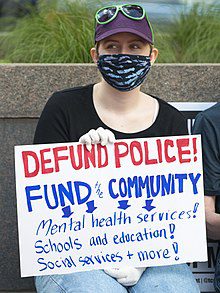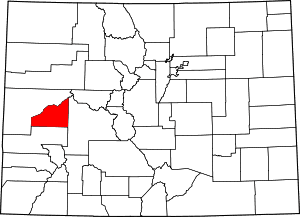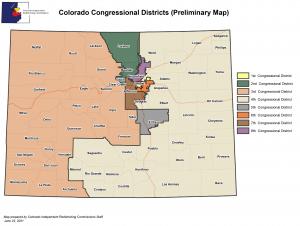I don’t often post an essay on this blog that has no discernable connection to either philosophy or the life of faith. Today’s essay is an exception. Every once in a while, I find myself compelled to weigh in on a pressing contemporary social/political issue–this is one of those times. As you’ll read, there’s a personal connection here. I also believe that there are plenty of philosophy and faith connections to be made; I’ll leave it to you to let me know in the comments section where you find them.

“Defund the police!” Few things are more likely to polarize than this phrase which became popular (and unpopular) during the George Floyd protests and beyond during 2020. It was a common slogan in conjunction with Black Lives Matter, virtually guaranteeing that it would be embraced by some, rejected by others, and misunderstood by many on both sides of our polarized nation. Many have suggested that “Defund the police” was partially responsible for the Democrats losing a number of seats in the House of Representatives in 2020. It’s one thing to support BLM and advocate for needed change, the thinking goes. It’s something entirely different to get rid of police forces.
Googling “Defund the police” produces dozens of definitions and sites seeking to explain what the phrase means. The definitions range from abolishing police departments entirely to the reallocation of funds from the police department to other government agencies funded by local municipalities. In our meme-obsessed society, “Defund the police” is a catchy phrase, much easier to fit on a bumper sticker or meme than something like “Redirect funds traditionally allocated to police force budgets toward more qualified organizations and persons.” In order to understand what “Defund the police” actually means, it’s important to consider examples of the idea in action. Permit me to use a personal example, my son’s new job.
My youngest son Justin has a Master’s degree in psychology and more than five years of experience as a mental health professional. A couple of weeks ago, I spent a few days helping him orient himself to his new surroundings in west-central Colorado, where he has taken a new professional position after a couple of years working as a front-line mental crisis professional in Arizona. His new job title is “Mental Health Crisis Co-Responder.” This is a newly created position in which my son will work in partnership with law enforcement officials when they come into contact with persons with suspected mental illness or a substance use disorder. Here’s how Justin described his many on the job duties to me:
My purpose is to intervene and prevent unnecessary hospitalization or involuntary mental health holds. I triage the mental health crisis, offer effective and efficient interventions, and coordinate care to allow the officer to quickly return to duty. I develop a collaborative crisis treatment plan that meets the needs of the client and the police. I then follow-up with the client by phone and/or in person within the first 72 hours to assure the client’s needs have been fully met and they have the resources they need. Finally, a side-product of my position is that I will be able to train officers on how to better approach mental health calls for when I cannot be there.
This saves unnecessary monetary costs to the community from visits to the ER and prevents multiple officers from having to respond to a call. My expertise allows me to handle a majority of the calls with just one officer present for a short amount of time. Also, with my knowledge of how to approach a client in crisis, I am better equipped to know when the client truly needs to be taken to a psychiatric facility or the ER.
What I find particularly interesting is that this creative collaboration between law enforcement and mental health professionals, a plan that clearly shifts duties traditionally assigned to police officers to better trained and qualified persons, is not happening in a liberal or progressive city or a town in the blue Northeast or Pacific Northwest. It is happening in Delta County, one of the reddest counties in the state of Colorado. According to the latest census statistics, the population of Delta County is 81.2% White, 15.3% Hispanic, 1.4% Native American, with the Black and Asian population each at less than 1%.
Delta County is in Colorado’s Third Congressional District, currently represented by Lauren Boebert in Congress. Delta County voters voted for Donald Trump over Joe Biden by a greater than 2 to 1 margin (67.5 to 30.4) in November 2020.  Suffice it to say that Delta County, indeed the entirety of Colorado’s Third Congressional District, is conservative. Conservative on steroids. So why would this reddest of red communities choose to create a new collaboration between law enforcement and mental health professionals that directly moves funds and responsibilities away from the police? I return to my son Justin’s explanation.
Suffice it to say that Delta County, indeed the entirety of Colorado’s Third Congressional District, is conservative. Conservative on steroids. So why would this reddest of red communities choose to create a new collaboration between law enforcement and mental health professionals that directly moves funds and responsibilities away from the police? I return to my son Justin’s explanation.
Without a mental health professional involved, there is always a potential for the officer or the client (or both) getting injured or killed because of misunderstanding and failure to recognize/utilize the correct intervention. “Defunding the police” in its true essence means re-allocating the police budget to include professionals such as myself to step in and assist with the calls that law enforcement personnel are not equipped/trained to handle. This saves money, time, resources, and most importantly lives.
In conclusion, Justin brings it home in a very direct way.
Had a co-responder been on scene when George Floyd was approached, I fully believe he would be alive today.
The next time you have a knee-jerk negative reaction to the phrase “Defund the police” or hear someone else having such a reaction, think about my son’s new job. Defunding the police is not about getting rid of the police. Rather, it’s about intelligently empowering collaborations between the police and professionals trained to perform the tasks that law enforcement officers have traditionally been required to perform with insufficient or non-existent training. Perhaps the best-selling point for those who worry that the idea is too progressive or liberal is that it will, as Justin says, save money, time, and resources. And, oh—at risk of sounding like a liberal—it will also save lives.













